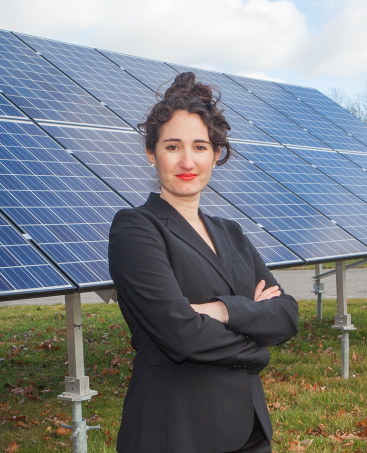
May 11, 2021
Vermont Law School’s annual Summer Session brings together students, practitioners, and lifelong learners from across the country. And with campus only partially open due to COVID-19, all of this summer’s courses will be offered virtually—so students can tune in from anywhere. (Some classes also have a hybrid, in-person option.) From this summer’s selection of 23 courses, we asked Associate Dean and Professor Jenny Rushlow to weigh in on the three she’s most excited about. Here are her top recommendations:
- Three Essentials of the Electric Grid
June 1-4, 7-10, and 14-17 (week one is in person/hybrid; weeks two and three are virtual only)“For those considering a career in the clean energy space, it’s an asset to have a fundamental understanding of the electric grid: how it’s engineered, how it’s financed, and the laws and policies that shape it,” Rushlow said. “That’s why we’ve invited three leaders in the energy sector to campus to teach this three-part course.” While it can be taken as one, two, or three modules for one credit each, Rushlow recommends taking all three for a more holistic view of the issues.
The course kicks off with “Engineering Essentials,” taught by Chris Root, COO of the Vermont Electric Power Company. Professor Root will explain how engineering realities can greatly affect market and regulatory choices. In “Business Essentials,” independent financial economist and consultant James Cater will explore key aspects related to electric grid financing, particularly in the context of energy project finance: from basic financial statements, to the importance of tax impacts, to how to construct and evaluate a basic financial model for a distributed energy project. Finally, Samantha Williams JD’05, Midwest director of the Climate and Clean Energy Program at the Natural Resources Defense Council, will tie it all together in the module “Legal Essentials.” Drawing from her experience working at the regulatory, utility, and state legislative levels to further policies that accelerate the clean energy transition, Professor Williams will use real case studies on “hot” issues to demonstrate how practitioners are advancing clean energy policies nationwide.
- Animal Welfare Law
July 26-August 5 (virtual only)Vermont Law School’s focus on animal law has been quickly expanding; the Environmental Law Center recently established a new concentration in animal law, launched an animal law lecture series, and is now expanding its repertoire of animal law courses offered. “Environmentalists have been slow to join forces with animal rights advocates, and VLS is working to change that,” Rushlow said. “Learning the legal tools necessary to protect the well-being of animals is an important part of making the world a better place.”
This course combines the traditional principles of animal welfare laws and advocacy with an examination of laws typically seen in the wildlife conservation context, like the Endangered Species and Marine Mammal Protection Acts. Students will examine the role of law in understanding and reforming the relationship between humans and animals and improving the condition of animals maintained for human profit and entertainment. They’ll do so under the guidance of three prominent animal welfare experts: Don Baur, a partner at Perkins Coie; Heather Rally, a supervising veterinarian of captive animal law enforcement at PETA; and Delcianna Winders, director of the Animal Law Litigation Clinic at Lewis & Clark Law School.
- Environmental Governance and the Private Sector
July 12-22 (in person/hybrid)This course will explore how environmental laws, policies, and public opinion interact to put pressure on businesses to adopt more environmentally-friendly practices. Students will explore the concept of private environmental governance, business sustainability drivers and practice, and the growth of market models in corporate governance. “This is where the field of sustainability is going, and this course will set students up for job opportunities and fulfilling positions to make change,” said Rushlow. VLS is thrilled to welcome adjunct professor Victor Flatt, a renowned expert in environmental law, climate law, and energy law. As a distinguished scholar of carbon markets at Global Energy Management Institute at the University of Houston Law Center, Flatt will draw from his expertise in carbon trading and other market-based measures to explain how the private sector can play a role in shaping a more sustainable future.